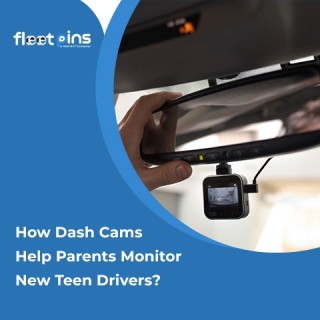- On 2024-10-25
GPS Tracking Laws by State 2024: A Guide for Businesses
GPS tracking technology has revolutionized how businesses manage their vehicles, assets, and employees. It is widely used in fleet management, logistics, and personal vehicle tracking to improve efficiency, enhance safety, and reduce operational costs. However, GPS tracking is subject to legal regulations in the United States, which can vary from state to state. Understanding these laws is crucial for businesses and individuals who want to stay compliant and avoid potential legal pitfalls.
At Fleet Pins, we will explain the legal landscape of GPS tracking, highlight the key regulations in place, and highlight how GPS tracking laws differ by state.
What Is GPS Tracking?
Global Positioning System (GPS) tracking is a technology that uses satellites to monitor the location and movement of vehicles, assets, or individuals. GPS tracking devices can be installed in cars, mobile devices, or standalone units and transmit real-time location data to a central system.
While GPS tracking offers numerous benefits, such as improving fleet management, reducing theft, and enhancing route efficiency, concerns have led to implementing GPS tracking laws that aim to balance the technology's benefits with the need to protect personal privacy.
Federal GPS Tracking Laws
Before diving into state-specific laws, it's essential to understand the general legal framework governing GPS tracking at the federal level. In the United States, GPS tracking is primarily regulated by federal privacy and electronic surveillance laws.
The Fourth Amendment
The Fourth Amendment to the U.S. Constitution protects citizens from unreasonable searches and seizures by the government. This includes law enforcement agencies' use of GPS tracking devices. In the landmark 2012 case, United States v. Jones, the Supreme Court ruled that attaching a GPS device to a vehicle and monitoring its movements constitutes a search under the Fourth Amendment and thus requires a warrant.
Electronic Communications Privacy Act (ECPA)
The ECPA governs electronic surveillance and intercepting electronic communications. While it primarily deals with wiretapping and data interception, it can also apply to certain types of GPS tracking if the tracking involves the interception of electronic communications, such as cell phone data.
Driver's Privacy Protection Act (DPPA)
The DPPA restricts how personal information from motor vehicle records can be disclosed and used. While it doesn't directly regulate GPS tracking, it can apply to businesses that collect and store GPS tracking data alongside driver information.
You May Also Read: How to Choose the Right GPS Tracking Device: A Comprehensive Guide
GPS Tracking Laws by State: Quick Overview
In addition to federal regulations, each state has laws governing the use of GPS-tracking devices. These laws typically cover consent, employer-employee tracking, personal tracking, and law enforcement use. Below is an overview of GPS tracking laws in various states.
Here you may have the quick list:
- Alabama: Alabama Code 13A-11-32
- Alaska: Alaska Statute 11.41.270
- Arizona: Arizona Code 13-2923
- Arkansas: Arkansas Code 22-8-105
- California: Penal Code Section 637.7
- Colorado: Vonnie's Law
- Connecticut: Public Act 21-56, Electronic Monitoring Act
- Delaware: Chapter 5 of Delaware Criminal Code, Title 11
- Florida: Florida Title 934.425
- Hawaii: Hawaii Revised Statute Section 803-42
- Idaho: Idaho Statute 18-6702
- Illinois: Statute 720 ILCS 5/21-2.5
- Indiana: Ind. Code 35-46-8.5-1
- Iowa: Iowa Code 708.11A
- Kansas: Kansas Statute 21-5427
- Kentucky: Ky Rev Stat 508.152
- Louisiana: LA Rev Stat 14:323
- Maine: Title 17-A, Maine Criminal Code
- Maryland: Md Code, Crim. Law 3-802
- Massachusetts: Section 43A of Massachusetts General Laws
- Michigan: MCL Statute 750.539l
- Minnesota: M.N. Statute 626A.35
- Nevada: AB356
- New Hampshire: NH Rev Stat 570-A:2-a
- North Carolina: NC Gen Stat 14-196.3
- New Jersey: N.J. Stat 34:6B-22
- New York: N.Y. Penal L 120.45
- Oklahoma: OK Stat 21-1173
- North Dakota: N.D. Cent Code 12.1-17-07.1
- Oregon: ORS 163.715
- Pennsylvania: Title 18
- Rhode Island: R. I. Gen. Laws 11-69-1
- South Carolina: Bill 3212
- Tennessee: Tenn. Code Ann. 39-13-606
California
California has some of the strictest privacy laws in the country, and this extends to GPS tracking. Under California Penal Code Section 637.7, it is illegal to use an electronic tracking device to determine a person's location or movement without their consent. However, employers can use GPS tracking for fleet management, provided they inform employees and obtain their consent.
Texas
Texas law permits GPS tracking as long as the person being tracked is aware of it or has given consent. Texas also allows GPS tracking of company-owned vehicles for employers, but it is recommended that employers inform employees to avoid potential privacy disputes. Tracking someone without consent could lead to civil and criminal penalties in personal tracking cases.
New York
New York state laws prohibit placing a GPS tracking device on a vehicle owned by another person without their consent. However, employers are generally allowed to track employees' location while driving company vehicles, provided it is done transparently. Law enforcement in New York must also obtain a warrant before using GPS tracking devices on individuals or their cars.
Florida
Under Section 934.425 of the Florida Statutes, using GPS tracking devices without the consent of the person being tracked is prohibited in Florida. This law applies to individuals and businesses alike. However, if an employer owns the vehicle, they are allowed to track it, but it is still advisable to inform employees about the tracking practice.
Illinois
Illinois law restricts the use of GPS tracking devices without consent. Under the Illinois Vehicle Code, installing a tracking device on a vehicle without the owner's permission is illegal. Employers can track company-owned vehicles, but similar to other states, employee consent and transparency are strongly recommended to avoid potential lawsuits.
Ohio
Ohio does not have specific state laws directly addressing GPS tracking. However, general privacy laws apply, meaning that tracking without consent could be considered an invasion of privacy. Employers in Ohio are allowed to track company-owned vehicles as long as they notify employees, primarily when tracking extends to outside working hours.
Massachusetts
Massachusetts requires a person to obtain consent before placing a GPS tracking device on someone else's vehicle. For businesses, the tracking of company-owned cars is allowed, but it is recommended that employees be notified beforehand to ensure compliance with privacy expectations.
Pennsylvania
In Pennsylvania, GPS tracking is legal as long as the individual being tracked is aware of it. For employer tracking, it is advised to include GPS tracking policies in employee handbooks or contracts, ensuring employees are fully aware of how the tracking system works and when it is used.
You May Also Read: 10 Essential Features to Look for in a GPS Tracking Unit
Key Considerations for Businesses Using GPS Tracking
For businesses that rely on GPS tracking for fleet management, it's essential to keep the following considerations in mind to stay compliant with GPS tracking laws:
- Employee Consent
- Written Policies
- Data Privacy
- Personal vs. Company Vehicle
Challenges in GPS Tracking Compliance
While GPS tracking offers significant benefits, compliance with the laws can be complex, especially for businesses that operate in multiple states. The main challenges include:
- Varying State Laws: As we've seen, GPS tracking laws can differ significantly from state to state. Businesses operating across state lines must comply with the specific regulations for tracking vehicles in each state.
- Employee Privacy Concerns: Even in states where tracking is legal, employees may have concerns about their privacy. This is especially true if tracking extends beyond working hours. Businesses should take care to balance operational needs with respect for employee privacy.
- Potential Legal Liability: Failure to comply with GPS tracking laws can result in civil and criminal penalties. In addition to financial damages, businesses could face reputational harm if employees or customers feel their privacy has been violated.
Conclusion
GPS tracking is a powerful tool for fleet management, helping businesses improve efficiency, reduce costs, and ensure driver safety. However, it also raises important legal considerations, especially regarding privacy and consent. The legal landscape surrounding GPS tracking is complex, with federal and state-specific laws governing its use.
To stay compliant, businesses should ensure they are familiar with the GPS tracking laws in their state, inform employees of tracking practices, and implement clear policies that prioritize privacy and transparency. By taking these steps, businesses can enjoy the benefits of GPS tracking while minimizing legal risks.




